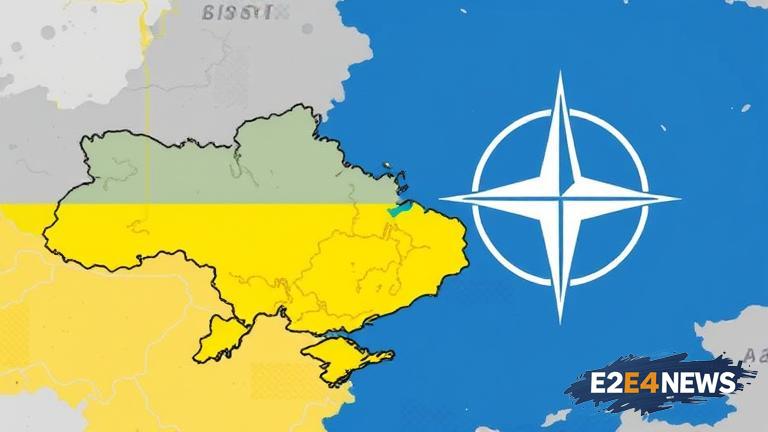The North Atlantic Treaty Organization (NATO) has reaffirmed its commitment to supporting Ukraine in its ongoing conflict with Russia. This move is part of a broader strategy to bolster Ukraine’s defense capabilities and promote stability in the region. NATO’s efforts are multifaceted, including the provision of military equipment, training for Ukrainian forces, and strategic guidance. The alliance has also been working closely with Ukraine to enhance its cyber defense capabilities, recognizing the critical role that cybersecurity plays in modern warfare. Furthermore, NATO has been engaging in diplomatic efforts to isolate Russia internationally, calling for an end to its aggressive actions in Ukraine. The situation in Ukraine remains volatile, with ongoing clashes between Ukrainian forces and Russian-backed separatists. Despite these challenges, Ukraine has made significant progress in its efforts to reform and strengthen its military, with NATO’s support playing a crucial role in these endeavors. The alliance’s assistance has included the provision of advanced weaponry, such as anti-tank missiles and artillery systems, which have been used effectively by Ukrainian forces to counter Russian aggression. In addition to military aid, NATO has also been providing economic support to Ukraine, recognizing the importance of a stable economy in underpinning the country’s security. This economic assistance has included support for reforms aimed at promoting transparency and reducing corruption, as well as direct financial aid to help Ukraine meet its immediate needs. The international community has been vocal in its condemnation of Russia’s actions in Ukraine, with many countries imposing sanctions on Russia in response to its aggression. Despite these international pressures, Russia has continued to support separatist forces in eastern Ukraine, leading to ongoing violence and instability in the region. NATO’s support for Ukraine is part of a broader effort to counter Russian aggression and promote stability in Eastern Europe. The alliance has also been working to strengthen its relationships with other countries in the region, including Georgia and Moldova, which have also been subject to Russian pressure. In the face of these challenges, NATO remains committed to its core principles of collective defense and cooperation, recognizing that a strong and united alliance is essential for maintaining peace and security in the region. The conflict in Ukraine has significant implications for global security, highlighting the need for international cooperation and diplomacy in resolving conflicts and promoting stability. As the situation in Ukraine continues to evolve, NATO will remain a key player, working closely with Ukraine and other international partners to promote peace, stability, and security in the region. The alliance’s support for Ukraine is a testament to its enduring commitment to the principles of democracy, freedom, and the rule of law, and its determination to defend these values in the face of aggression and intimidation. In conclusion, NATO’s enhanced support for Ukraine reflects the alliance’s recognition of the critical importance of this conflict for regional and global security, and its determination to play a leading role in promoting stability and defending democratic values. The situation in Ukraine remains complex and challenging, but with NATO’s support, the country is better equipped to defend itself and promote peace and stability in the region. As the international community continues to navigate the challenges posed by Russian aggression, NATO’s commitment to Ukraine serves as a powerful reminder of the importance of collective defense and cooperation in maintaining peace and security. The alliance will continue to work closely with Ukraine and other international partners to address the challenges posed by this conflict, and to promote a more stable and secure future for the region. Ultimately, the outcome of this conflict will have significant implications for the future of European security, and NATO’s support for Ukraine is a critical component of its efforts to promote stability and defend democratic values in the face of aggression.





